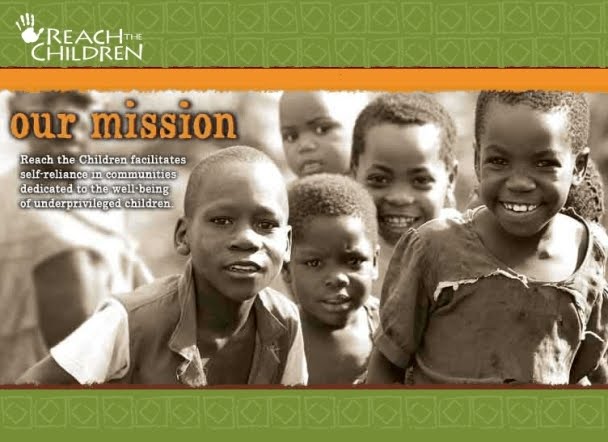RTC's Kenya Country Director wrote about the project in the following:
2009 DAIRY – POULTRY – SHEEP PROJECT
By Jastus Suchi Obadiah
This is a report of the $10,000 sent to Reach the Children Kenya via RTC Inc. in 2009 for the implementation of Dairy Project in Western Kenya according to the proposal that was sent. These funds were supposed to purchase fifteen cows, however due to an improved exchange rate: The funds were used to empower more families than targeted as shown in the table below:
The Groups that received the animals above are indicated in the report attached to this report. However, five major groups received, that is:
- SHIEBU Network (comprising of over 30 self help groups) found in Butere District. They got 13 cows and ten goats.
- Vihiga Development Group from Vihiga District got two cows.
- Annointed Youth Group from Trans nzioa District. They received 11 Sheep.
- Ang’olo Women Group that received 10 goats
- Mesori Beach group that received five goats.

Farmers receiving training and instructions on how to manage animal from a local trainer.
Impact of the Project So Far
Letters of appreciation will be send by this report, however most of these letters were written before calves were born and even chickens had not multiply. A report that will be send in May will indicate the new findings. However a general survey showed that those families that received cows that have delivered economic lives improved, they had improved from living on a less than a dollar per day to living on five and above dollars a day. Indirectly, the keeping of dairy cow had improved the farming activities too because they were able to purchase seeds and other farm input. Families surrounding those that received also reported a new income generating activity of selling grass to those that have cows; this has generated a new excitement in the community to grow grass commercially for those that keep cows/goats etc. Those that received Chickens, they got immediate benefit, and most farmers sell eggs and chicken for meat.
Below, we have some of the photos taken from the project, some photos are of poor quality but they show hopeful families. On behalf of RTC Kenya and all the families, Thanks

This is the wife of Daniel Masimba, their cow is incalf and they do have high hopes. She takes care of it when the husband is out working.

This is a family of Samuel Frodwa, the cow delivered and they are now enjoying milk, being handcaped means that he stays at home most of the time while his wife goes to look for grass. They said that this is the first time they have owned a cow. Once they donate two calves born, they hope to keep more cows to produce more milk.

This is a family of Hanningtone Amunga, in this photo, they have smilling faces as they await they take care of their incalf cow. They are hopeful that the cow will give them milk and transform their economic life. So far, they are benefiting from compost made from the manure and resecue of animal feeds. This has improved their home garden so much.

The projects targest both men and women. This is to bridge a gap that has dominated cultral beliefs that women and men cannot work together. Now more women like the one above (Esther Ochero) are hopeful even after loosing her husband three years ago. She hopes to earn money from the cow she received to educate her children through secondary. During the training, men are taught to respect the rights of their wives to own things like cows etc.

Indeed RTC has not reported any major family disputes resulting from men wanting to take all the money sold from milk or even selling the animal. During the initial preparation stage, local cheifs are also involved and thus a signature of a husband, wife or any family member is gotten to quarantee family support.

Indeed RTC has not reported any major family disputes resulting from men wanting to take all the money sold from milk or even selling the animal. During the initial preparation stage, local cheifs are also involved and thus a signature of a husband, wife or any family member is gotten to quarantee family support.

When a cow delivers, a farmer is supposed to take care of it for eight months, before handing over to another farm. This is normaly done openly with a short ceremony as shown above. Though it takes up to two years for the young cow to mature, the receiving end is normaly happy and optimistic.

This Group from Vihiga called: Vihiga Development Group received two cows, one has already delivered

This is a family from Annointed Youth Group from Kitale area, they received one Sheep which delivered one month later. He is supposed to donate two born sheep and then he can enjoy the sell of the rest. In this community, they sell sheep for meat.

This is Wanyama family with their donated cow, they are hopeful and strive each day to take care of it. They were trained on how to take care of it well. They have grown enough grass for it. The cow should be delivering any time soon.

This is Ang’olo Women Group that received ten goats from RTC. Most of these goats have since delivered. They sent much appreciation to those that donated.












